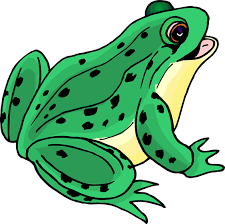Most bodily functions, while necessary, are often annoying. They seem to happen at the most inopportune moments. Some functions you humans have control over while others, you do not. Following is a list of a few bodily functions and why they occur.
1. The Yawn. Humans aren't the only creatures who yawn. Other invertebrates do as well. Yawning seems to happen when you're bored or tired and scientists don't yet fully understand why humans yawn. Yawning involves open the mouth very wide and taking in a large volume of air and then expelling it slowly. "Yawning involves stretching of the muscles of the jaw, chest, diaphragm, and windpipe. These actions help to get more air into the lungs." Research has shown that yawning helps to cool the brain. When a human yawns, their heart rate increases and they breathe in more air. That cool air circulates to the brain, bringing down its temperature to a normal range. "Yawning as a means of temperature regulation helps to explain why you yawn more when it is time for sleep and upon waking up. Your body temperatures fall when it is time for sleep and rise when you wake up. Yawning also helps to relieve pressure build up behind the eardrum that occurs during changes in altitude."
2. The Sneeze. Sneezing is a reflex action that occurs when you get an irritant in the nose. The action of sneezing expels the irritant, like mold, pollen, dust, etc. from the nasal passage. But while it's doing this good thing, it also expels bad things, like viruses, bacteria, and other pathogens. Sneezing is stimulated by white blood cells in the nasal tissue. These cells release chemicals like histamines that cause an inflammatory response resulting in swelling and movement of more immune cells to that area. The nasal area also becomes itchy which prompts the sneezing response. So why do humans close their eyes when they sneeze? Researchers believe that it is an involuntary action to prevent germs from entering the eyes. "Nose irritation is not the only stimulus for the sneeze reflex. Some individuals sneeze due to sudden exposure to bright light. Known as photic sneezing, this condition is an inherited trait."
3. The Hiccup. Hiccups result from an involuntary contraction of the diaphragm. "Spasms in the diaphragm cause a sudden intake of air and the widening and closing of the vocal cords. It is the closing of the vocal cords that create the hiccup sound." Scientists don't know why humans hiccup. Animals, like dogs and cats (no frogs, though) get hiccups too, occasionally. Hiccups are usually associated with drinking too much alcohol or carbonated beverages, eating and drinking too quickly, eating spicy foods, changes in emotional states, and sudden changes in temperatures. Hiccups don't normally last for very long, but they can ,last for a while due to nerve damage of the diaphragm, nervous system disorders, and gastrointestinal problems.
4. Goosebumps. It is general thought that the term "goosebumps" was derived because these tiny bumps on human skin looked like a freshly plucked bird. Humans get goosebumps when they are cold, afraid, nervous, or are under some sort of emotional strain. Goosebumps are an involuntary reaction, an autonomic function of the peripheral nervous system. When you get cold, the sympathetic division of the autonomic system sends signals to the muscles on your skin causing them to contract. This causes tiny bumps on the skin, which in turn cause the hairs on your skin to rise." In hairy animals this action helps them to insulate them from the cold by preserving body heat. "Goosebumps also appear during frightening, exciting, or stressful situations. During these events, the body prepares us for action by accelerating heart rate, dilating pupils, and increasing metabolic rate to provide energy for muscle activity. These actions occur to prepare us for a fight or flight response that occurs when faced with potential danger."
All this data may well come under the classification of "useless information." But I do find it interesting that many, although not all of the human involuntary responses are also found in many animals.
Tomorrow is Wednesday which means a visit from my wise teacher, The Dharma Frog. And because it is Valentine's Day, I'm quite sure he'll have an important message about love.
See you then!

 RSS Feed
RSS Feed